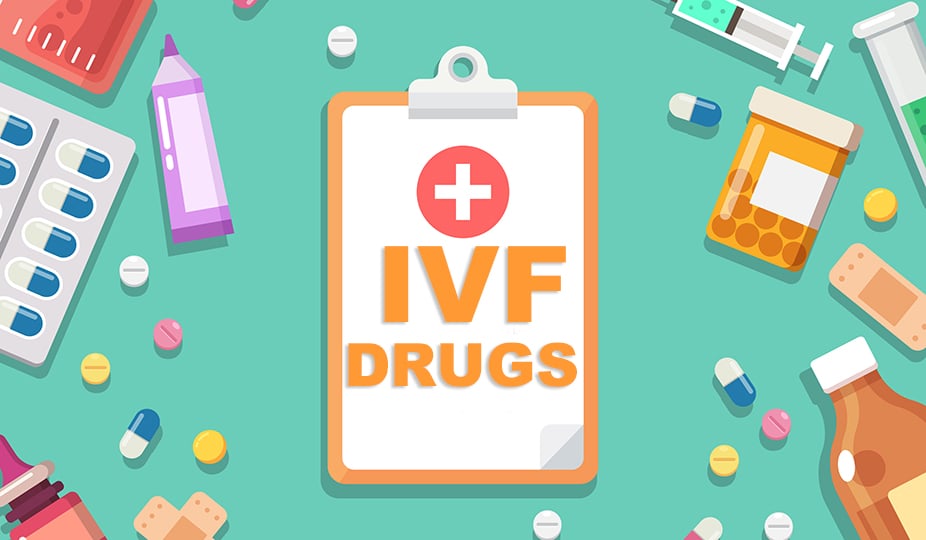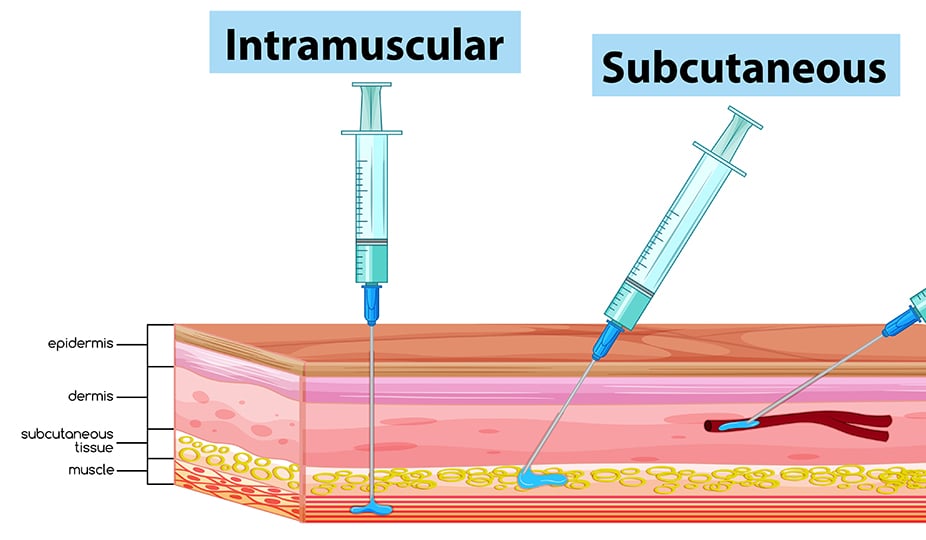IVF Drugs Explained – Complete Fertility and IVF Medications List
Both intended parents and egg donors take tons of IVF drugs during the programs. However, not always can one get an explanation and understand what all those injections do to their body. That`s why we decided to create a complete IVF medications list and show the meaning of each particular pill or injection. Let`s go through the process and overview them step by step.

How Do IVF Drugs Depend on the Program Stage?
At different stages of the IVF program, doctors use various drugs. At the first stage, medications prepare the woman’s body for the subsequent stimulation of ovulation. The second stage aims at stimulating the maturation and growth of the eggs. After embryo transfer, doctors use medications that support the condition of the uterine mucosa, thereby increasing the chance of success of the IVF.
Step 1 – Blockers
This group of IVF drugs includes agonists (analogs) and antagonists of gonadotropin-releasing (GnRH) hormone. They increase the likelihood of fertilization during IVF by suppressing the release of luteinizing hormone (LH).
The GnRH analogs are:
- Diphereline,
- Decapeptyl,
- Leuprorelin,
- Goserelin (Zoladex),
- Synarel,
- Buserelin.
Gonadoliberin agonists (a-GRH) prepare the ovaries for stimulation. Also, these IVF medications prevent premature ovulation – rupture of the follicles before the puncture. They are administered by daily subcutaneous injection or in a depot form.

Antagonists of GnRH include:
- Orgalutran,
- Cetrotide,
- Cetrorelix.
Gonadoliberin antagonists (ant-GRH) prevent premature ovulation at the final stage of stimulation. They are administered intramuscularly. Usually, one cycle requires no more than 4-5 injections.
Step 2 – Ovulation Stimulants
The next group of IVF drugs is ovulation stimulants. They replace natural gonadotropins, causing the growth and maturation of follicles and subsequent ovulation. Thanks to these IVF medications, it is possible to get several eggs in one cycle. The trigger shot contains IVF drugs with human chorionic gonadotropin (hCG). It is the last injection that completes the maturation of the eggs and prepares female organisms to the retrieval. Egg retrieval procedure happens 36-48 hours after the trigger injection. Here is a video showing how to make the trigger shot.
These drugs include urinary gonadotropins:
- Pergonal,
- Humegon,
- Menotropin,
- Pregnyl,
- Gonasi (5000-15000IU).
Recombinant gonadotropins:
- Puregon,
- Gonal-F,
- Ovidrel.
Doctors often prescribe indirect ovulation stimulants such as Clostilbegyt (Clomifene).
Step 3 – Ovulation Triggers and Embryo Transfer
The third position in the IVF medications list is ovulation triggers. They imitate or stimulate the release of luteinizing hormone, due to which ovulation occurs.
These drugs include:
- Choragon,
- Profasi,
- Rotten,
- Lupron.
For short-term anesthesia during the egg retrieval, Diprivan is usually used.
Step 4 – Embryo Transfer and Post Transfer
The 4th group of drugs supports the function of the corpus luteum and helps to support the luteal phase after embryo transfer. These include the following medicines:
- Duphaston,
- Progesterone,
- Choragon.
Progesterone drugs prepare the uterine mucosa for the process of embryo transfer. Usually, doctors prescribe them up to 12-14 weeks, after which the placenta is formed and begins to secrete its progesterone in the required amount.
Besides, the attending physician may prescribe Estradiol, Progynova, Metipred, Dexamethasone. These medications contain the hormone estradiol. They prepare the uterine mucosa for embryo transfer. The drugs are available in tablet form and should be taken until the pregnancy test.
Quite often, doctors also prescribe low molecular weight heparins, such as Lovenox, Clexane, Fraxiparine, which prevent blood coagulation.
What You Should Remember when Taking IVF Drugs
All IVF drugs for independent use are provided with detailed instructions and have a convenient form. Besides, you can find a large number of videos illustrating the process of self-injection with ovulation stimulants. However, one should remember that most drugs used in in vitro fertilization include potent substances. It is unacceptable to prescribe them yourself without consulting a doctor.
The patients should take pills and injections on those days and even hours indicated by the reproductologist. It would be best if you discuss any change in the schedule with the doctor. Remember that even a single change in the prescribed hour of taking the drug can lead to a failed IVF attempt. The use of any additional medicines, whether related or not related to the procedure, should be agreed with your doctor.
If your state of health requires the constant use of any medication, you must inform your doctor before starting the IVF procedure. More than that, you should immediately report the attending physician concerning any change in your health and well-being.
I hope that this article was informative and helped you to understand the role of fertility medications better. If you have any questions concerning IVF – don`t hesitate to contact us directly. The consultation is free as well as the biggest egg donor database we have. Stay healthy and let your dream family come true!
